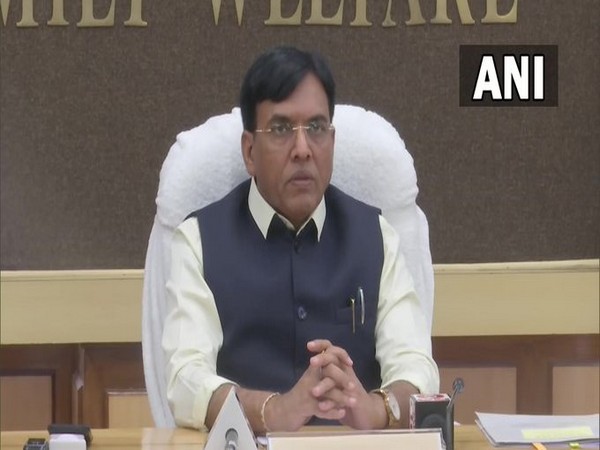Govt secures potassic, phosphatic fertilizers for Kharif season: Mandaviya

- Country:
- India
Asserting that there will not be any shortage of key fertilizers during the upcoming Kharif season, Chemicals and Fertilisers Minister Mansukh Mandaviya on Tuesday said the government has secured in advance enough DAP supplies and has also entered into a long term pact with Jordan for the import of potassic and phosphatic soil nutrients.
Last week, a long term pact was signed between Indian and Jordanian companies for an annual supply of 30 lakh tonnes of rock phosphate used in DAP making, 3 lakh tonnes of potash, 2.50 lakh tonnes of DAP, and 1 lakh tonnes of phosphoric acid, for the next five years, he said.
With India securing 30 percent Di-Ammonium Phosphate (DAP) required for Kharif season much in advance and companies told not to buy at higher rates from the global market, the minister claimed there was a correction in the international DAP prices which declined to USD 920 per tonne from USD 1,030 per tonne during last week. ''There is a global fertilizer crisis. India is the world's largest fertilizer importer and should get supplies at lesser rates... In many countries, fertilizers are rationed. We have not done (that). We made the advance purchase of key fertilizers to ensure availability during the Kharif season,'' Mandaviya told reporters here.
During the last Kharif season, there were only 18 lakh tonnes of DAP stock. But this year, the country is in a better position and has a DAP stock of 30 lakh tonnes against the requirement of 60 lakh tonnes for the Kharif season.
Kharif season is from June to September.
A monthly supply of 6 lakh tonnes of DAP would come from domestic production and arrangement has also been made for the supply of raw material 'rock phosphate' for production of DAP here, he said.
During a visit to Jordan last week, the minister said a long term agreement was signed between Jordan Phosphate Mining Company (JPMC) and Indian public cooperatives and private firms for the supply of 30 lakh tonnes of rock phosphate, 2.5 lakh tonnes of DAP, 1 lakh tonne of phosphoric acid for the next five years.
A long-term pact was also signed between Indian Potash Ltd (IPL) and Arab Potash for an annual supply of 2.75 lakh tonnes of Muriate of Potash (MoP) which will uniformly increase every year up to 3.25 lakh tonnes, he added. ''There won't be any shortage of DAP as we have ensured supplies in advance,'' he said. Meanwhile, the government has identified rock phosphate reserves in Uttar Pradesh, Madhya Pradesh, and Rajasthan and this will also help in increasing domestic production, he added. In the case of urea and Muriate of Potash (MoP) too, the minister said the government has secured supplies in advance.
Against the requirement of 180 lakh tonnes of urea for this Kharif season, about 140-150 lakh tonnes would come from the domestic production while the rest 30 lakh tonnes from imports.
''Already 15 lakh tonnes of urea have been imported. A long-term agreement has been signed for the supply of 5 lakh tonnes while resting 10 lakh tonnes will be easily arranged,'' he added.
Stating that there is no concern about MoP supplies, the minister said the country is fully dependent on imports for this fertilizer. Against the requirement of about 20 lakh tonnes of MoP for the Kharif season, about 10 lakh tonnes are already with state governments.
The balance of 10 lakh tonnes of MoP supplies has been arranged from Jordan, Israel, and Canada by signing long-term agreements with these countries, he said.
India has entered into a separate long-term agreement for the supply of 3 lakh tonnes of MoP from Jordan, 6 lakh tonnes from Israel, and 12 lakh tonnes from Canada for the next five years.
Mandaviya said the government is also exploring a monthly domestic production of 1 lakh tonnes of MoP from molasses.
He also said the government's fertilizer subsidy is likely to touch Rs 2-2.5 lakh crore in the current fiscal given high global prices.
(This story has not been edited by Devdiscourse staff and is auto-generated from a syndicated feed.)
ALSO READ
"43 ghost towns...": Israeli researcher om present situation in Pakistan amid war with Hamas
Legal pressures mount on German policymakers to cut aid to Israel
Israel Targets Aid Convoy in Gaza, Resulting in Tragic Consequences
"We do hear deafening sounds of war all around us": Israeli researcher on living through war with Hamas
Man sentenced to 10 years in prison for sexual assault in Uttar Pradesh










